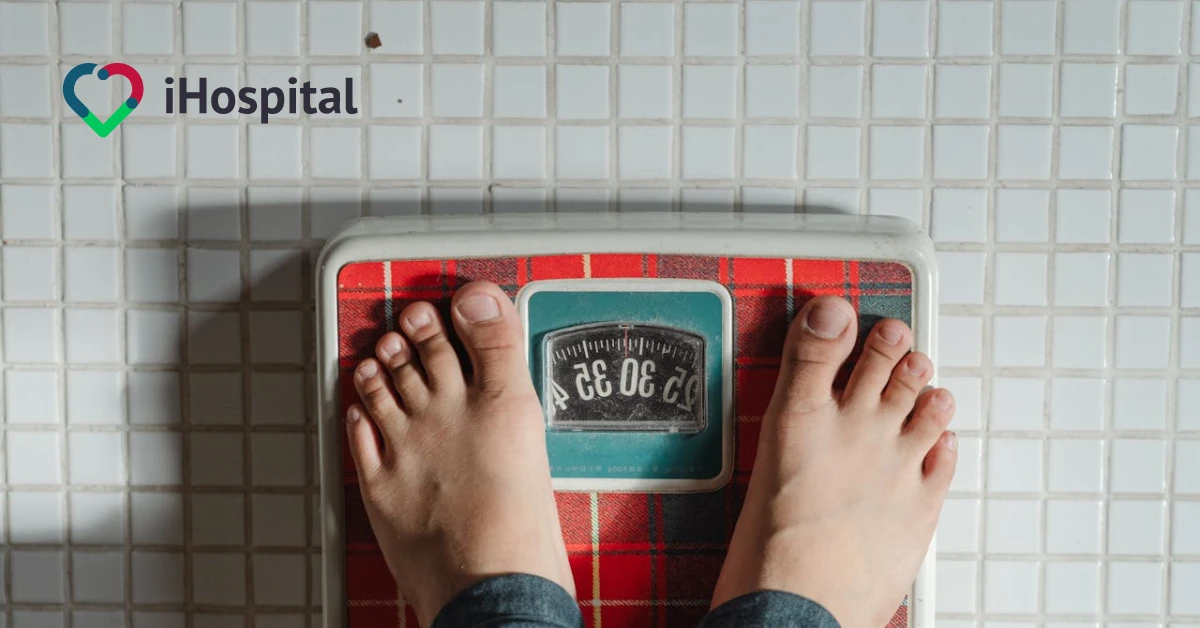
Practical and effective tips to maintain your ideal weight and avoid obesity
2024-06-15
<h1>Practical and effective tips to maintain your ideal weight and avoid obesity</h1><p> </p><p>Managing your weight doesn’t necessarily mean dramatically changing your life. Take small steps, aim modestly and realistically, and then build from there. Steady, small weight loss of ½ to 1 kg (one or two pounds) per week is much easier and healthier for your heart than more dramatic weight loss. Research also shows that you’ll be more likely to stop it.</p><p>Excess weight can mean an increased risk of many serious health issues, including heart disease, stroke, high blood pressure, high cholesterol, and diabetes. Here are practical tips to help you maintain your ideal weight and avoid obesity.</p><h2>Tips for maintaining an ideal weight and avoiding obesity</h2><p>You can maintain an ideal weight and avoid obesity by eating healthy food with the right number of calories, getting regular physical activity, and avoiding stress.</p><p><span>Here’s more in more detail:</span></p><h3>1- A healthy diet</h3><p>What to eat, how much to eat, when to eat, how to eat – four things to consider when eating and creating a dietary plan to maintain a healthy weight. <span>Follow these nutritional tips:</span></p><ul><li><h4>What to eat</h4></li></ul><p>– Choose healthy, balanced, and colorful foods to nourish your body with essential elements. At each main meal, <span>divide your plate as follows:</span></p><ul><li>Half a plate of non-starchy fruits and vegetables (i.e., potatoes are not an option).</li><li>One-quarter of the plate is from whole grains, such as rice, whole wheat, quinoa, oats, and brown rice, and foods made from them, such as whole-wheat pasta.</li><li>The other remaining quarter: Protein-rich foods, such as lean meat and chicken, fish, legumes such as beans and lentils, nuts and seeds, and low-fat dairy products.</li></ul><p>– Use healthy vegetable oils in moderation, such as olive, canola, soybean, corn, sunflower, peanut, etc., and avoid hydrogenated oils, which contain unhealthy trans fats.</p><p>– Avoid highly processed foods, which are a major source of saturated fat, sugar, and sodium. <span>These foods include:</span></p><ul><li>Processed meats such as sausages, burgers, and deli meats.</li><li>Fried foods such as French fries and onion rings.</li><li>Frozen meals such as pizza, samosa, and pastries.</li><li>Snack foods such as chips, crackers, cookies, cakes and biscuits.</li></ul><p>– Read the nutritional value table on all food labels to assess the amount of calories, saturated fat, sugar, and salt a product may contain.</p><p>– Drink adequate amounts of water, with reasonable amounts of coffee or tea, and limit sugary drinks and juices as much as possible.</p><p>– Prepare meals at home using fresh ingredients and healthy cooking methods such as baking, grilling, or steaming instead of frying.</p><ul><li><h4>How much to eat</h4></li></ul><p>Keep portion sizes reasonable, avoid large portions, use smaller plates, bowls, and cups, and stick to the healthy plate as mentioned above.</p><ul><li><h4>When to eat</h4></li></ul><p>Eat small meals spread throughout the day; three main meals and two snacks, and don’t skip breakfast, which is the most important meal of the day.</p><ul><li><h4>How to eat</h4></li></ul><p>Eat slowly and chew your food well, and avoid unconscious eating in front of the TV or while using the phone, or even just before bedtime.</p><h3>Exercise</h3><p>Aim for 30 minutes of moderate physical activity most days of the week, such as brisk walking. This not only helps you lose weight but is also a key factor in maintaining a healthy weight in the long run.</p><h3>Good sleep</h3><p>Adults need 7 to 9 hours of quality sleep per day, which is essential for maintaining a healthy weight among other things; studies have shown that people who don’t get enough sleep are more likely to be overweight or obese.</p><h3>Reduce stress</h3><p>It may seem surprising, but stress plays a big role in your weight. It raises cortisol levels, which can make you feel hungry and crave sugary and high-calorie, and fatty foods. Instead of overeating or lying on your couch, try to find healthy ways to deal with stress, such as walking, exercising, talking to a friend, or volunteering.</p><h3>Healthy waist</h3><p>Measuring your waistline can help assess the health risks associated with obesity. Even at a healthy weight, excess fat around the waist can increase the risk of high blood pressure, high cholesterol, heart disease, and type 2 diabetes.</p><h2>How do I know if my weight is healthy?</h2><p>Knowing your body mass index (BMI) is one way to know if your weight is healthy or not, and you can calculate it by dividing a person’s weight in kilograms by the square of their height in meters, <span>individuals are classified into different weight categories:</span></p><ul><li><span>Underweight:</span> BMI less than 18.5.</li><li><span>Normal weight:</span> BMI 18.5-24.9.</li><li><span>Overweight:</span> BMI between 25-29.9.</li><li><span>Obesity:</span> BMI of 30 or higher.</li></ul><p><span>Talk with <a href="https://www.ihospitalapp.com/ar/search/%D8%B7%D8%A8-%D8%A7%D9%84%D8%A3%D8%B3%D8%B1%D8%A9/%D8%A7%D9%84%D8%A3%D8%B1%D8%AF%D9%86/%D8%B9%D9%85%D8%A7%D9%86">your doctor</a> or <a href="https://www.ihospitalapp.com/ar/search/%D8%A7%D8%AE%D8%B5%D8%A7%D8%A6%D9%8A%D8%A9-%D8%AA%D8%BA%D8%B0%D9%8A%D8%A9-%D9%88%D8%A7%D9%84%D8%AD%D9%85%D9%8A%D8%A9/%D8%A7%D9%84%D8%A3%D8%B1%D8%AF%D9%86/%D8%B9%D9%85%D8%A7%D9%86">iHospital network dietitian</a> about what is a healthy weight for you, and the appropriate dietary plan and lifestyle changes as you develop a plan to reach and maintain a healthy weight.</span></p><hr><h2>References</h2><ol><li aria-level="1"><a href="https://www.cdc.gov/healthyweight/index.html"><span>Healthy Weight, Nutrition, and Physical Activity</span></a><span>, CDC</span></li><li aria-level="1"><a href="https://www.nia.nih.gov/health/healthy-eating-nutrition-and-diet/maintaining-healthy-weight"><span>Maintaining a Healthy Weight</span></a><span>, National Institute on Aging</span></li><li aria-level="1"><a href="https://www.medicalnewstoday.com/articles/303409"><span>10 Tips for Successful Weight Loss</span></a><span>, Medical News Today</span></li><li aria-level="1"><a href="https://www.heart.org/en/healthy-living/healthy-eating/losing-weight/keeping-a-healthy-body-weight"><span>Keeping a Healthy Body Weight</span></a><span>, American Heart Association</span></li></ol>